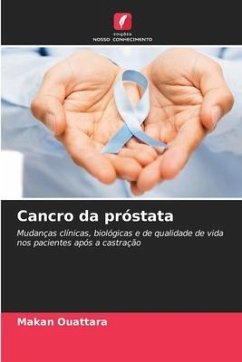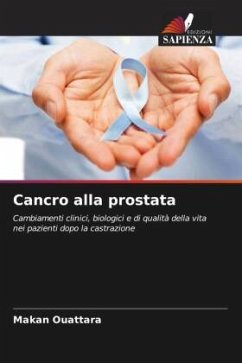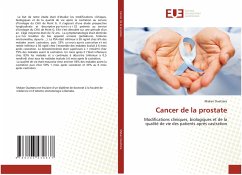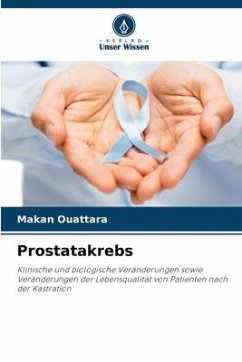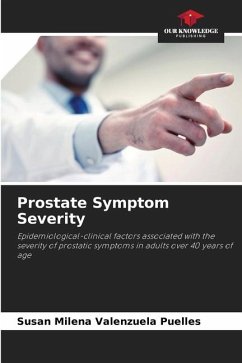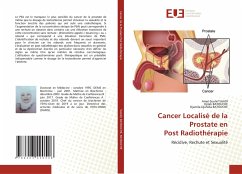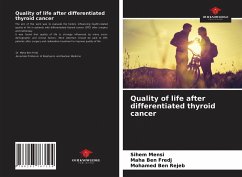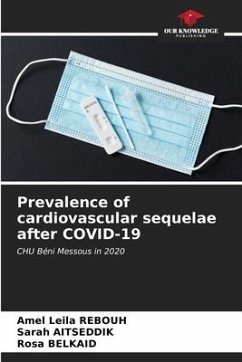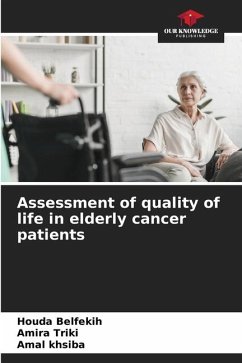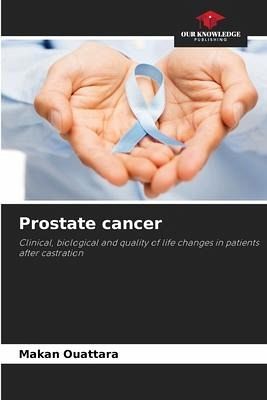
Prostate cancer
Clinical, biological and quality of life changes in patients after castration
Versandkostenfrei!
Versandfertig in 6-10 Tagen
40,99 €
inkl. MwSt.

PAYBACK Punkte
20 °P sammeln!
The aim of our study was to investigate the clinical, biological and quality of life changes after castration at the Urology Department of the Point G University Hospital. It was a prospective longitudinal and descriptive study of 32 patients in the Urology Department of the Point G University Hospital. It took place over a period of one year. The average age was 72 years and the symptoms were dominated by lower urinary tract disorders (pollakiuria, mictional burning, dysuria, etc.). The PSA was lower than 50 ng/ml in 6% of the patients before castration, then 33% one month after castration an...
The aim of our study was to investigate the clinical, biological and quality of life changes after castration at the Urology Department of the Point G University Hospital. It was a prospective longitudinal and descriptive study of 32 patients in the Urology Department of the Point G University Hospital. It took place over a period of one year. The average age was 72 years and the symptoms were dominated by lower urinary tract disorders (pollakiuria, mictional burning, dysuria, etc.). The PSA was lower than 50 ng/ml in 6% of the patients before castration, then 33% one month after castration and remained lower than 50 ng/dl in all the patients evaluated at 6 months after castration. Testosteronemia was above 1 nmol/ml in 75% of the patients before castration. One month later it was lower in 83% of patients and continued to decrease (below 0.5 nmol/ml) in all patients evaluated at 6 months after castration. Quality of life was poor in about 56% of patients before castration then in50% 1 month after castration and 33% at 6 months after castration.



